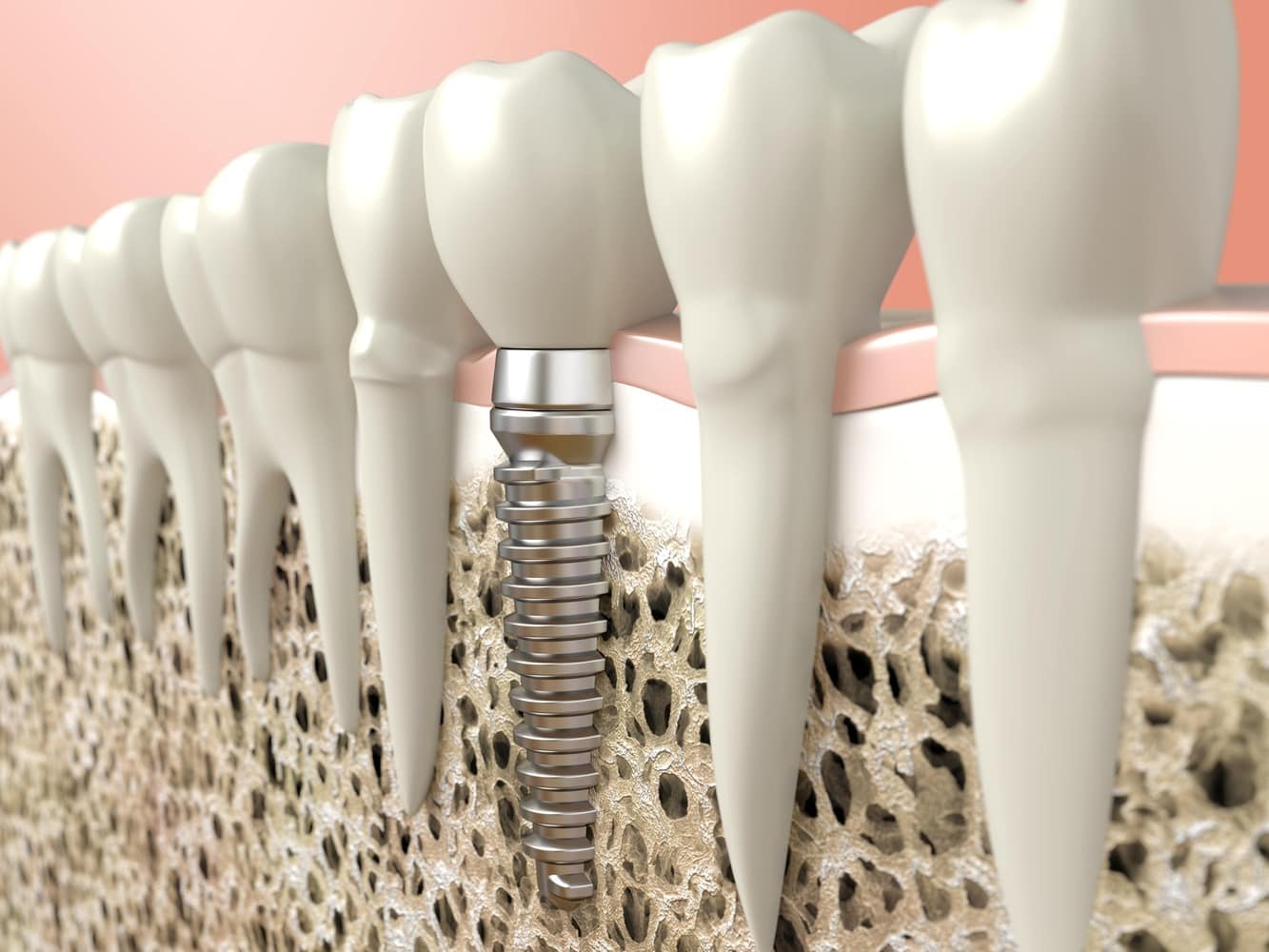In one fashion or another, dentists and others have been using dental implants for over 4,000 years. The technology for providing dental implants in Sherwood Park has come a long way since the use of bamboo pegs in China four millennia ago or copper pegs and gold wire used in Egypt approximately 3,000 years ago. The technology and procedure for providing dental implants has advanced so far that over 5,000,000 Americans receive dental implants every year. We regularly hear from and treat Albertans looking for dental implants to replace missing teeth every year, no matter how those teeth were lost. Here’s one common question that we’re asked: What if I lost my teeth years ago? Can I still have it replaced with a dental implant? The answer is “yes,” but requires some explanation.
How dental implants work
Dental implants obviously replace teeth. However, what makes them so successful and what is so important for the purpose of answering this question is that dental implants near you also replace teeth roots. A titanium post is inserted into your jaw in the location of the missing tooth’s root. A replacement tooth or other dental restoration is attached to that implanted post using an abutment. To ensure a long-lasting, successful and healthy dental implant, it’s essential that your titanium post bond successfully to your bone tissue. That process is called osseointegration. Because titanium is a biocompatible material, your body should accept that titanium post as if it were natural bone tissue.
If the titanium implant does not bond to your jaw bone or if you don’t have enough jaw bone mass or density to support your implant, the implant procedure will fail (or be impossible to even attempt). At a minimum, a successful dental implant requires that you have at least 1.5 to 2.0 millimetres of bone tissue of sufficient density and quality to be able to hold and support a dental implant.
What if you lost the tooth years earlier?
When you lose a tooth (and the root of that tooth), you also lose the stimulation that the root provides to your jaw bone. In the first few years after losing a tooth (through an extraction for example), you will lose roughly 40% of the jaw bone mass and density around the former (and now missing) tooth root. The longer you wait and the more jaw bone mass and density you lose, then, the greater the risk that your jaw will not be able to support your dental implant. Does that mean you can’t get dental implants near you if it’s been more than two or three years since your tooth extraction? Not necessarily.
Dentists at a dental office in Sherwood Park can augment (improve or add to) the bone in your jaw if you have lost too much bone mass or density to sustain a dental implant. Dentists can transplant bone tissue from elsewhere in your body (or donated or even artificial bone material) to your jaw. Bone augmentation can add up to four or five millimetres (in width) and three millimeters (in height) of bone tissue to your jaw precisely where required to support an implant. When dentists use artificial bone tissue, that artificial tissue acts like a platform over which your body places its own regenerated bone tissue.
Once your new bone tissue has established itself in your jaw and achieved the size and density required to support and sustain an implant, your dentist will commence the dental implant procedure assuming you’re otherwise a good candidate to receive implants.
If you’re having a tooth extracted for any reason and want to “reserve the right” to receive implants later, ask the staff at your dental office in Sherwood Park if it’s possible or appropriate to have them place bone material in your extraction site immediately after pulling your tooth. Doing so will, for up to a decade, counteract the body’s natural tendency to lose bone tissue in your jaw.
To find out if you’re a good candidate for dental implants in with or without jaw bone augmentation, get in touch with a dental office near you to arrange an assessment of your needs and condition.
